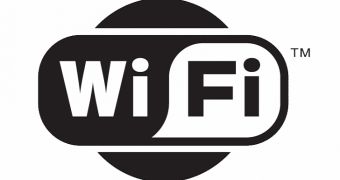I’ve seen plenty of paradoxes in my time, but the one that could arise on the networking segment could put many of the others to shame, even though there are parties that will probably prevent certain breakthroughs (just for the sake of so-called logical progression).
Which is to say, even though a technology exists that could make that of another type totally useless, it probably won’t happen due to various technological and marketing agreements.
Not that I’m insinuating anything here. Security scandals and virus-related matters do enough of that on their own.
Still, sometimes things happen that make it hard for even me to stay totally emotionally cut off from what’s happening in certain fields.
In this case, Quantenna’s latest project has raised a few questions in regard to what the networking technology segment will look like by 2020, and what it could look like but probably won’t.
The queer facts
Currently, the “standard” speed for cable local area networks (LAN) is 1 Gigabit, Gb for short, but there has been work on 10 GbE. The technology should be implemented pretty soon actually.
Wi-Fi, in the meantime, is a bit trickier. Single chips only allow for a few hundred Megabits per device, while routers, bridges, access points and range extenders can combine chips and antennas to reach as high as 1,900 Mbps when both the 2.4 GHz and 5 GHz bands are used.
Still, as great as 1,900 Mbps sounds, it’s likely to be divided among dozens of devices, negating the awe factor. And with 10 GbE LAN on the way, the “wow” factor goes down even more. Especially since high-end dual-band routers are expensive as sin.
That would be the end of it. We’d have, under normal circumstances, no trouble living with the reality of Wi-Fi being clearly inferior to LAN, speed-wise if not in terms of ease of use.
Quantenna made it impossible for “normal” to apply to the situation though, because it has just announced that it is working on a 10 Gigabit Wi-Fi chip. A 10 Gb Wi-Fi chip that will be ready in 2015.
The potential
Theoretically, there isn’t much that could prevent the chip from being adopted right away. Breakthroughs are breakthroughs after all, and everyone wants a slice of them.
Even if enterprise customers adopt the technology for servers, data centers and supercomputers, it should be easy enough to implement 10 Gb Wi-Fi in PCs and mobile devices as well.
Especially since energy efficiency isn’t a problem at this point, and there are new battery-making technologies too.
I can almost imagine it, everyone with a super-fast phone or tablet copying and sending files through a residential router or gateway, which, itself, could handle 10-100 Gbps all at once.
And it all could become reality before the decade is out. That’s the clincher here, it’s something that can happen in the short term.
The (sadly) likelier outcome
As much as I hate to say it, and this is what I’ve been building up towards, realistically, we probably shouldn’t hold our breath for PCs with faster Wi-Fi than cable LAN.
Enterprise and HPC (high-performance computing) customers will probably make unrestricted orders as soon as Quantenna releases its new chip.
On the PC and smartphone/tablet/gadget front, though, I’m having trouble seeing it precede 10 GbE LAN. Cable net has always been faster than Wi-Fi, so I doubt that the new chip will be adopted that fast in motherboards and mobile device PCBs, for whatever reason.
I just hope that it will happen because of “natural” causes, like, say, the consortium that handles wired Ethernet advancements pulling a fast one and releasing 10 GbE chips quicker, and for a much lower price than the Wi-Fi chips. Instead of deliberate delays to the wireless breakthrough, for the sake of marketing “stability” or whatever.

 14 DAY TRIAL //
14 DAY TRIAL //